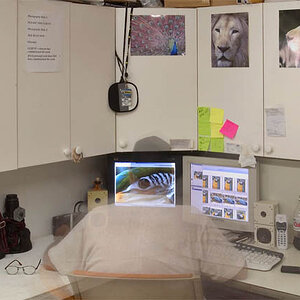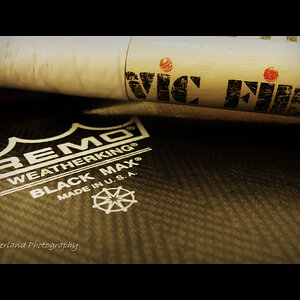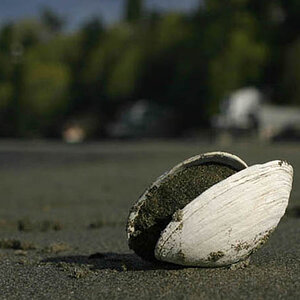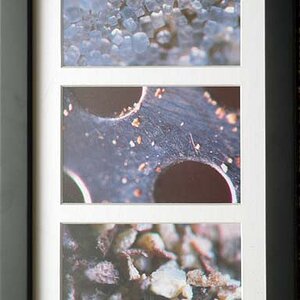Jesse17
TPF Noob!
- Joined
- Feb 7, 2016
- Messages
- 24
- Reaction score
- 6
- Can others edit my Photos
- Photos OK to edit
I just attended a short talk by the Humanities Montana Speakers Bureau program, called “Starting With Huffman: Photographers of Montana’s High Plains”. It was a presentation that showed the differences in styles of various photographers who have done work to showcase the plains/prairie side of Montana since the 1880s. It was quite interesting to see that some of these famed photographers were known for styles that directly violated many of the 'rules' of composition.
But something that really stuck with me was the fact that the presenter is a professional historic preservation photographer who takes photographs of old bridges for the Library of Congress. She said she uses a 4x5 (IIRC) black and white camera because the Library of Congress requires a 500 year archive life of photograph media. She said B&W negatives, if stored correctly, are suppose to have a 500 year life, but there is no means of storing a digital photo that will last 500 years.
She didn't go into details, and it's something I've heard touched on before, but I thought it was something interesting to think about. Sure, we back up files but we store them on machines that WILL not last 500 years. So unless we're constantly moving the files to newer storage facilities, in only 100 years, where will we find a historic photo taken in 2015?
I took an online photography course a couple months ago and it talked about exporting photos to .jpg simply because it's mainstream and you may wake up in 20 years and find out no editing programs support the proprietary RAW format your camera used when you took the photo.
I'm sure there will be conversion programs when that happens, but will you have time and the desire to buy software and dedicate a week to converting files? What if you'll just 'get to it later' until the external hard drive you store them on is obsolete too?
I'm sure they will invent new technology, but I just thought it was interesting that there is no media (not even print) that will allow you to store your photos for 100 years, or pass them on to the next generation, without a proactive approach to actively preserving them. There's no locking them in a trunk for 50 years for someone else to find, because that someone else won't have any equipment to read the files, assuming the media you used even lasted 50 years. (not likely)
But something that really stuck with me was the fact that the presenter is a professional historic preservation photographer who takes photographs of old bridges for the Library of Congress. She said she uses a 4x5 (IIRC) black and white camera because the Library of Congress requires a 500 year archive life of photograph media. She said B&W negatives, if stored correctly, are suppose to have a 500 year life, but there is no means of storing a digital photo that will last 500 years.
She didn't go into details, and it's something I've heard touched on before, but I thought it was something interesting to think about. Sure, we back up files but we store them on machines that WILL not last 500 years. So unless we're constantly moving the files to newer storage facilities, in only 100 years, where will we find a historic photo taken in 2015?
I took an online photography course a couple months ago and it talked about exporting photos to .jpg simply because it's mainstream and you may wake up in 20 years and find out no editing programs support the proprietary RAW format your camera used when you took the photo.
I'm sure there will be conversion programs when that happens, but will you have time and the desire to buy software and dedicate a week to converting files? What if you'll just 'get to it later' until the external hard drive you store them on is obsolete too?
I'm sure they will invent new technology, but I just thought it was interesting that there is no media (not even print) that will allow you to store your photos for 100 years, or pass them on to the next generation, without a proactive approach to actively preserving them. There's no locking them in a trunk for 50 years for someone else to find, because that someone else won't have any equipment to read the files, assuming the media you used even lasted 50 years. (not likely)


![[No title]](/data/xfmg/thumbnail/34/34122-fb99897e57c9440aede4be4fdc5f1352.jpg?1619736292)


![[No title]](/data/xfmg/thumbnail/34/34126-2956b6786a44f993f9aad43e097be84c.jpg?1619736297)







![[No title]](/data/xfmg/thumbnail/32/32162-dd2cfb373402c59de9c6f13cee73b0fb.jpg?1619735234)